- The new car market grew by 1.1% in June to 179,263 units, surpassing the million-car sales mark in the first half of the year since 2019.
- Battery electric vehicles have the highest monthly market share since December 2023, but year-to-date take-up has remained steady at 16.6%.
- The industry is calling on the next government to support consumers as fewer than one in five new battery electric cars go to private buyers.
VIEW CAR REGISTRATIONS BY BRAND
DOWNLOAD PRESS RELEASE AND DATA TABLE
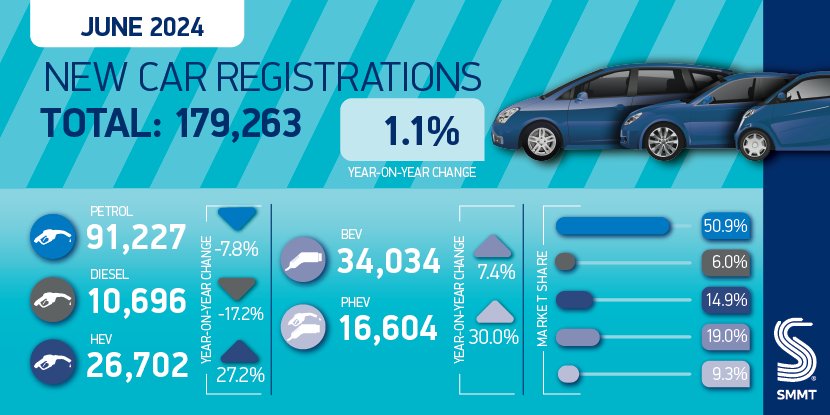
The UK new car market has passed the half-year million mark for the first time in five years after new car registrations rose by a modest 1.1% to 179,263 units in June, according to new figures published by the Society of Motor Manufacturers and Traders (SMMT). As a result, 1,006,763 new cars have been registered so far in 2024, up 6.0% on the previous year but still down 20.7% on 2019.1
June’s market growth was driven primarily by the fleet sector, where take-up rose 14.2%, while private retail demand fell for the ninth consecutive month, at -15.3%. Private buyers accounted for fewer than four in ten new car registrations (37.7%).
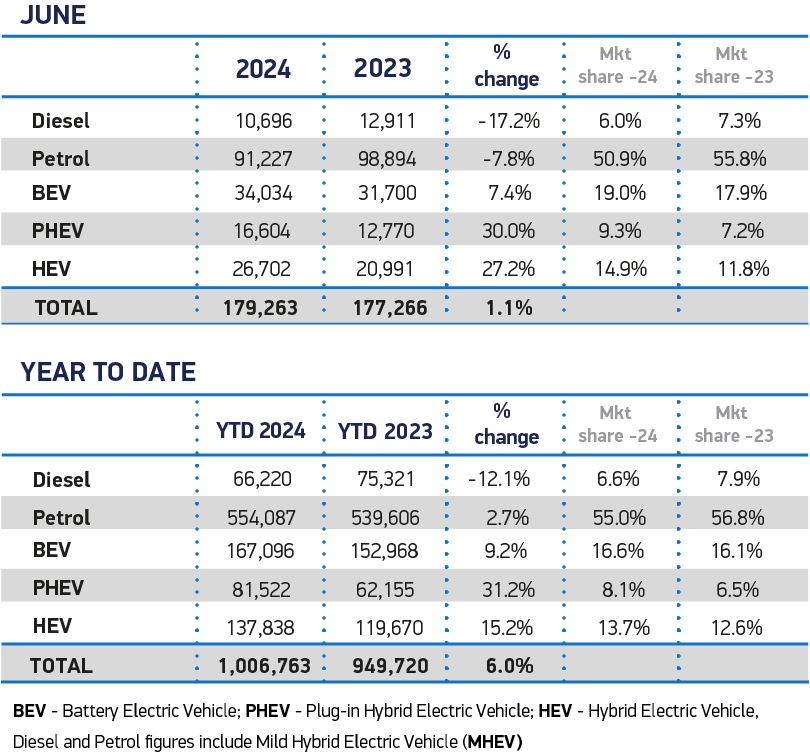
Electric vehicle take-up continued to grow strongly in June, with plug-in hybrid (PHEV) volumes rising 30.0% to a 9.3% market share, while hybrid electric vehicles (HEV) rose 27.2% to 14.9% of the market. Both powertrains also outpaced growth in battery electric vehicles (BEV), which rose 7.4% but recorded the highest monthly share this year, accounting for 19.0% of all new vehicle registrations.
The UK’s transition to zero emissions – and manufacturers’ ability to meet Vehicle Emissions Trading Scheme requirements – is currently dependent on the fleet sector, as private consumer adoption continues to decline. Private BEV adoption is down -10.8% year to date, with less than one in five new BEVs going to private buyers. Overall, BEVs now account for 16.6% of the new car market so far this year, slightly up on the 16.1% achieved in the same period last year, with adoption still lagging behind government-mandated levels.
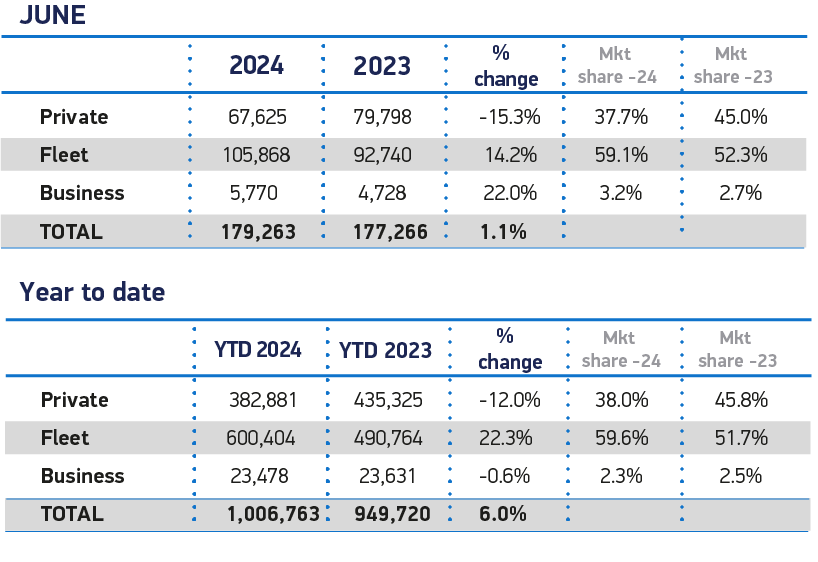
With the UK going to the polls today, the car industry is calling on the next government to provide more support for consumers on their journey to zero-emission mobility. Reintroducing tax incentives for private consumers by halving VAT on BEVs for three years would revitalise the market and put an additional 300,000 private BEVs – replacing petrol or diesel cars – on the road over the next three years, on top of current forecasts.2 This would ensure that half of all cars on the road would be emission-free by 2035. This would reduce CO2 emissions from road transport by 175 million tonnes.
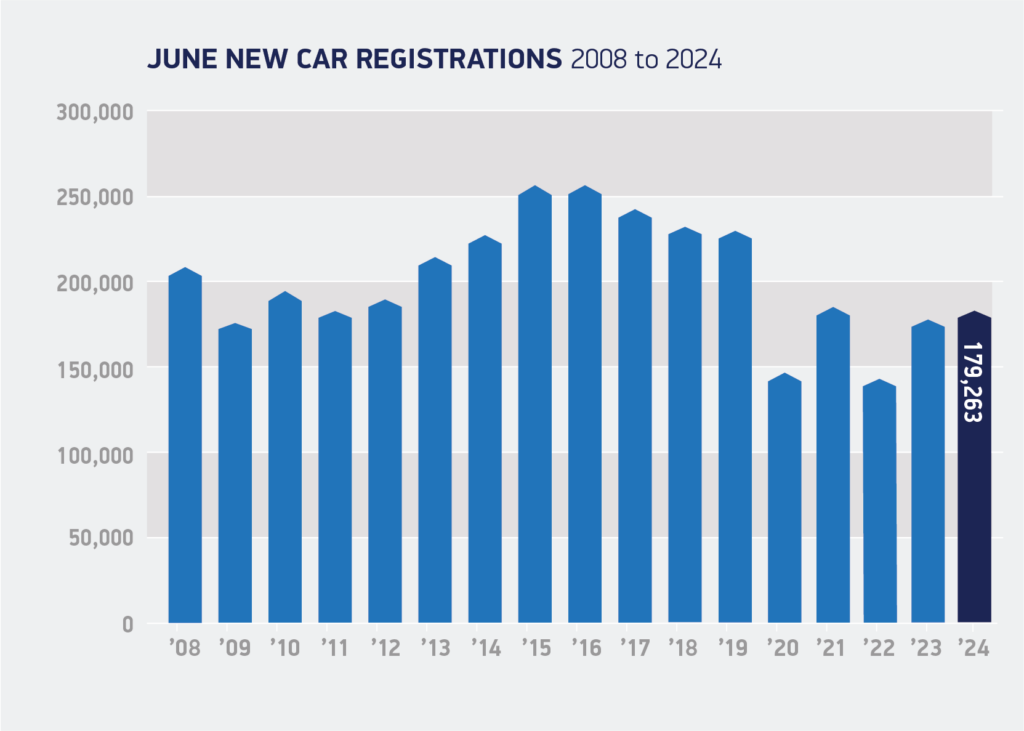
Vehicle tax plans should also be revised to ensure zero-emission vehicles (ZEVs) are classed as essential rather than “luxury” vehicles, by adjusting the ‘expensive car’ surcharge that will apply from April next year. In addition, the use of public charging points could be made fairer by reducing VAT from 20% to 5%, in line with home charging – a move that would support the uptake of ZEVs and send the right message to consumers.
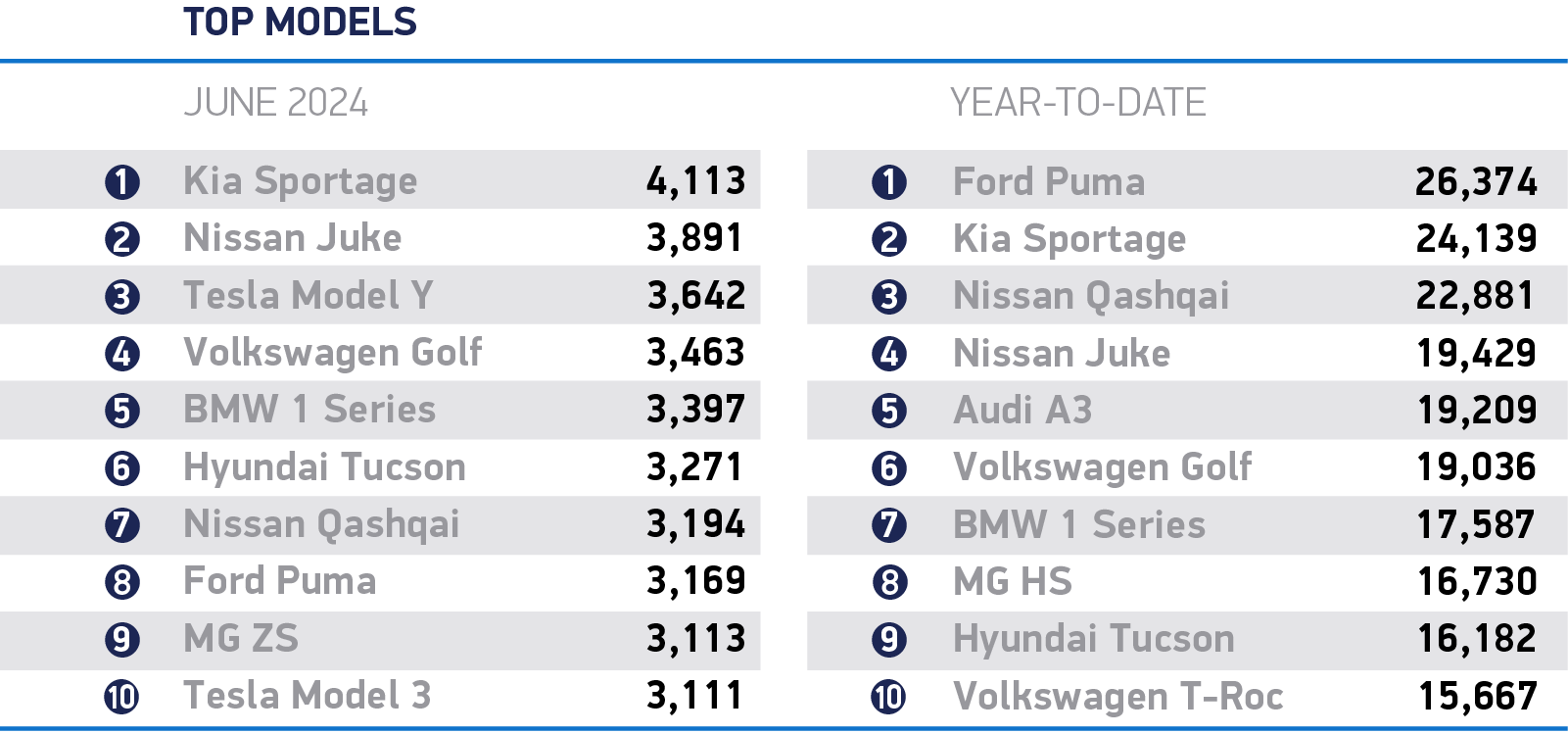
Mike Hawes, CEO of SMMT, said:
The midpoint of the year shows the new car market in its best shape since 2021, but this masks the bigger challenge ahead. The private consumer market continues to shrink against a difficult economic backdrop, but with the right policies the next government can revitalise the market and deliver a faster, fairer transition to net-zero emissions. All parties agree that carbon emissions must be reduced, and replacing older fossil fuel-based technologies with new electrified powertrains is the essential step to achieving that goal.
Notes for editors
1 Jan-Jun 2019 new car registrations: 1,269,245
2 SMMT: Support the automotive sector and reap the benefits of £50 billion growth
